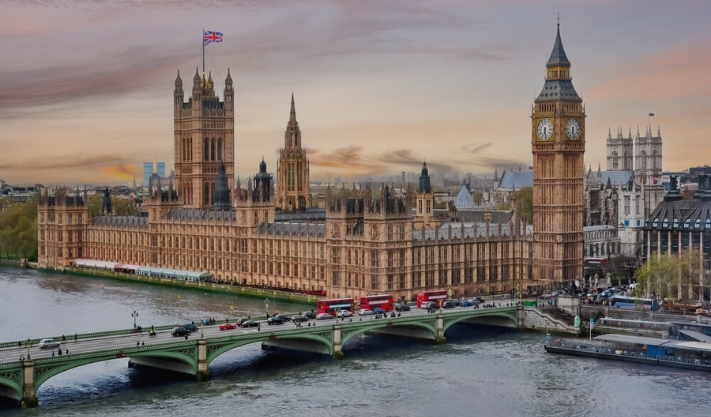The UK’s economy grew by only 0.1% in the third quarter, as high interest rates reduced how much people are spending
The UK’s economy grew more slowly in the third quarter due to uncertainty about the Labor Party’s budget and the effects of high interest rates on businesses and consumer spending.
Growth slows
The UK’s economy grew by only 0.1% between July and September, according to data released on Friday by the Office for National Statistics (ONS). This is lower than the 0.5% growth seen in the previous quarter.
Economists had predicted a growth of 0.2% for this period.
The services sector grew by 0.1%, construction grew by 0.8%, but the production sector shrank by 0.2%. The ONS also reported an increase in trade, household spending, business investment, and government spending.
Thomas Pugh, an economist at RSM UK, said the growth was disappointing, showing that the economy is losing momentum. He pointed out that the economy has only grown in two out of the last six months. However, he believes that the weak overall growth is hiding some improvements, and he expects a stronger growth in the fourth quarter and the start of 2025.
Non-consumer services showed no growth, while services aimed at consumers grew by 0.5%. The biggest contributor to this growth was a 0.7% rise in professional, scientific, and technical activities.
The UK’s nominal GDP is estimated to have grown by 0.8% in the third quarter, mainly due to higher employee compensation.
Inflation slows
In September, inflation in the UK dropped sharply to 1.7%, falling below the Bank of England’s (BoE) 2% target for the first time since April 2021. This decrease in inflation allowed the BoE to lower interest rates by 0.25% on November 7, bringing its main rate to 4.75%.
Inflation is expected to rise again by the end of 2024 as the effect of lower energy prices fades from the yearly comparison, according to the BoE’s statement earlier this month. The BoE expects inflation to increase to around 2.5% by the start of next year.
Pugh pointed out two challenges for the UK economy:
“First, we need to get more people back into work. Since the pandemic, many people have been inactive or sick, which is slowing down growth and affecting government finances,” he said. “The second challenge is to improve the UK’s productivity growth.”
Published: 16th November 2024
Also Read:
Hidden Gems of the British Isles: Off-the-Beaten-Path Escapes
How to Build the Perfect Skincare Routine for the UK Weather
The Secret to Staying Active Through the British Winter























